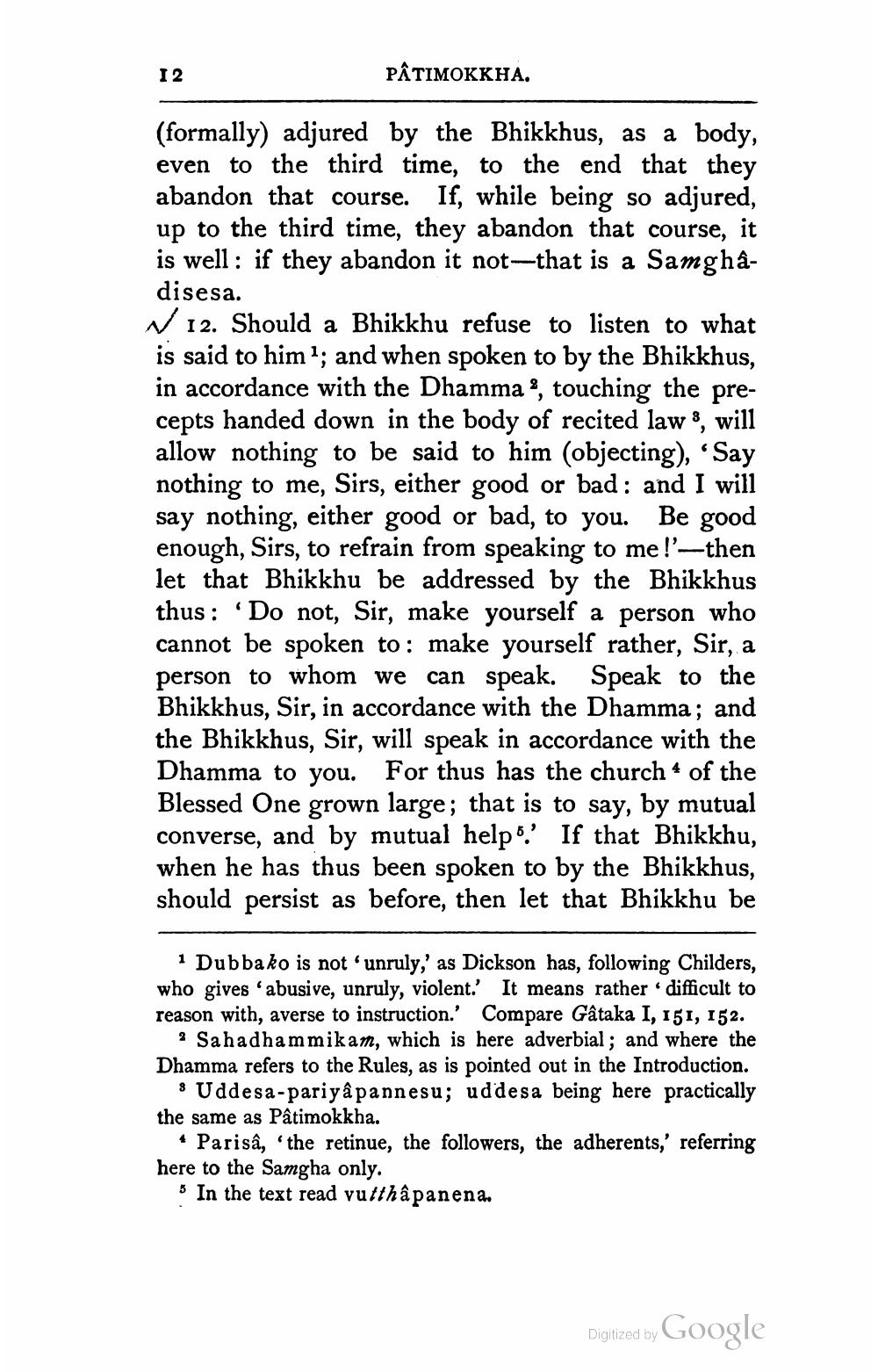________________
I2
PÂTIMOKKHA.
(formally) adjured by the Bhikkhus, as a body, even to the third time, to the end that they abandon that course. If, while being so adjured, up to the third time, they abandon that course, it is well : if they abandon it not—that is a Samghadisesa. ✓ 12. Should a Bhikkhu refuse to listen to what is said to him ; and when spoken to by the Bhikkhus, in accordance with the Dhamma”, touching the precepts handed down in the body of recited laws, will allow nothing to be said to him (objecting), 'Say nothing to me, Sirs, either good or bad: and I will say nothing, either good or bad, to you. Be good enough, Sirs, to refrain from speaking to me!'-then let that Bhikkhu be addressed by the Bhikkhus thus : 'Do not, Sir, make yourself a person who cannot be spoken to: make yourself rather, Sir, a person to whom we can speak. Speak to the Bhikkhus, Sir, in accordance with the Dhamma; and the Bhikkhus, Sir, will speak in accordance with the Dhamma to you. For thus has the church + of the Blessed One grown large; that is to say, by mutual converse, and by mutual help.' If that Bhikkhu, when he has thus been spoken to by the Bhikkhus, should persist as before, then let that Bhikkhu be
1 Dubba ko is not unruly,' as Dickson has, following Childers, who gives abusive, unruly, violent. It means rather difficult to reason with, averse to instruction.' Compare Gâtaka I, 151, 152.
Sahadhammikam, which is here adverbial; and where the Dhamma refers to the Rules, as is pointed out in the Introduction.
s Uddesa-pariyâpannesu; udidesa being here practically the same as Pâtimokkha.
• Parisâ, 'the retinue, the followers, the adherents,' referring here to the Samgha only.
5 In the text read vutthâpanena.
Digitized by Google




